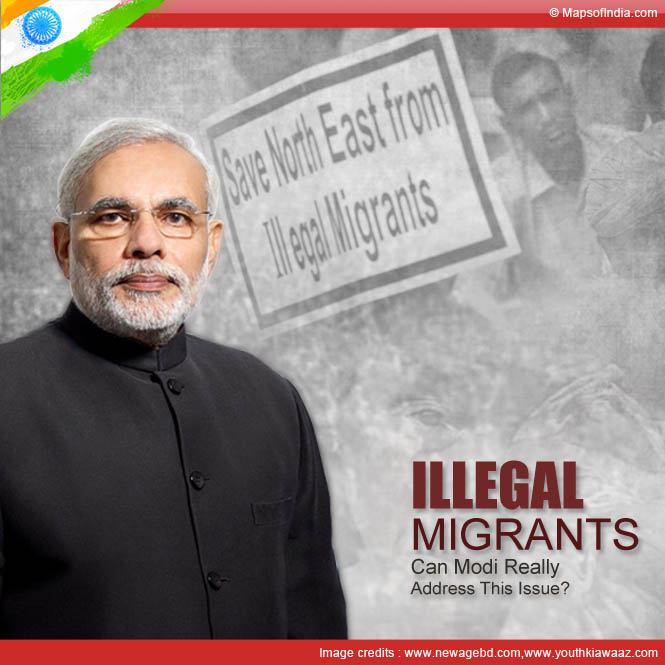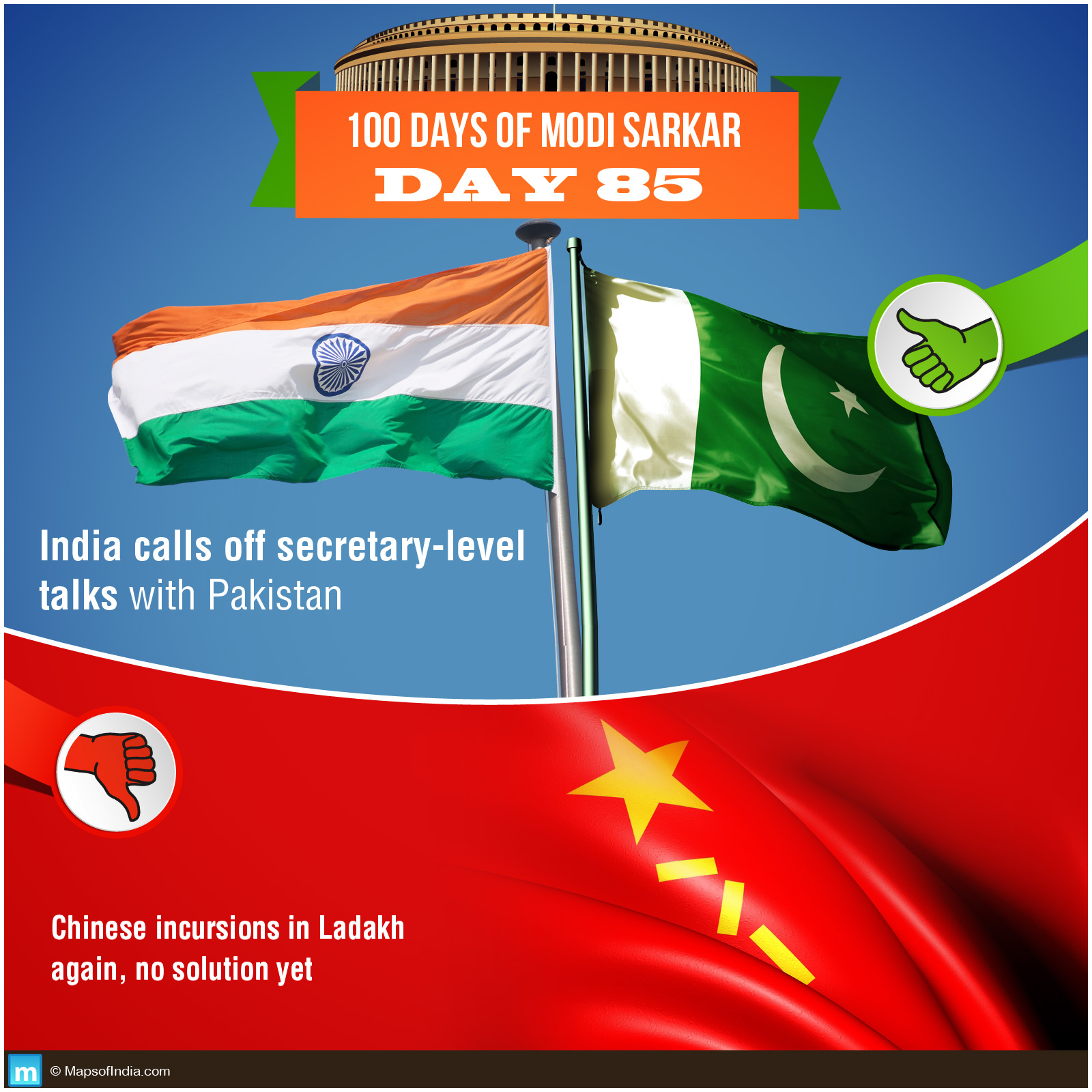It has been reported that Narendra Modi has announced that Illegal migrants of Assam must leave the country within fifteen days. If true, this would be a follow-up move on his electoral promise that he would take action against the illegal migrants, if voted to power. He is now in the hot seat and is walking the talk.
But is this decision well thought of and does he have a solution that is practical and implementable? Prior to his elevation as a prime ministerial candidate, he restricted himself to state politics and issues relating to his state. His rapid rise from a prime ministerial candidate to becoming a prime minister, has brought him to the forefront of several contentious issues.
It is normal to expect politicians and political parties to shout political rhetoric in rallies to woo the electorate but post poll, almost all politicians and political parties have to face the harsh realities of administration, law & order and the economy. Mamata Banerjee learnt it the hard way and the learning continues, at the cost of an electorate that still awaits Godot.
Narendra Modi is in a unique position as a Prime Minister, in India today. He has been voted to power on the back of a charismatic campaign that actually raised hopes of the common man that he could be the one to lead them out of their miserable lives and take India on a path of progressive development. In fact, Narendra Modi will now like to position himself not only as a leader that could be the Lee Kuan Yew of India, but also emerge as a significant leader of International stature. And he has the mandate and the opportunity to do so.
The problem is that India is a political, social and economic conundrum that has evolved without long term planning or direction. The situation is complex on all levels and the problems are so deep-rooted that addressing them to the satisfaction of all stake holders will not be easy.
The problem is that Modi is man in a hurry to make his mark and towards that he has begun taking steps that can only lead to further polarization and possibly, civil unrest. Two issues that can trigger the undoing of all the gains made so far, is Article 370 and his pronouncement on Illegal migrants in Assam.
While we will leave Article 370 for another day, the illegal migrant problem requires understanding of ground realities both in India and Bangladesh and then this has to be addressed in a manner that is politically acceptable, economically viable and socially feasible. There are no clear answers as of now since there are no clear data available and any action taken in haste can only be to Modi’s disadvantage.
The problem goes back to the run up to the war for the liberation of Bangladesh in 1971, when migration of mainly Hindu refugees, escaping prosecution and atrocities in East Pakistan, crossed over in large numbers, to the border states of West Bengal and Assam. That process has continued over the years and has now become a social, economic and political problem.
In the initial years, the steady stream of migrants were mostly Hindus but over the years the migration has been by mostly Muslims seeking an alternate life to grinding poverty that still prevails in Bangladesh.
Most of the migrants are normal people with families, seeking a better life but there is a small minority that has used the opportunity to facilitate smuggling, human and cattle trafficking, money laundering and other criminal activities, on both sides of the porous border between India and Bangladesh. Unfortunately, this minority is taken to represent the majority of migrants and all political parties justify their positions using the criminal activities of this minority, as an example.
The ground reality is that the illegal migration has changed the political and social demographics of Assam and West Bengal and the original local residents resent this. Although, there are no clear government census data available, there have been several individual reports and studies undertaken that indicate the numbers could range from around 2 to 10 million refugees in India.
Irrespective of the actual numbers, the situation is that in Assam the migrants, mainly Muslims, have been legitimized over the years and have now become a substantial political voice in Assam. They now represent and lend support to other illegal migrants who have been arriving and whose status is still illegal, to enhance their political base further. The resulting situation has seen social and communal clashes with increasing frequency in Assam. The situation has gone from bad to worse.
This problem is largely true for West Bengal as well. Both the Left Front and now the TMC, have exploited the situation by using this segment of people as a vote bank and has actually exacerbated the problem, rather than address it. However, the Left Front and now the TMC has by and large been able to control the communal tensions but Assam has not been successful in containing the communal clashes and now we have a situation that could well get out of hand, given the BJP’s position on the issue.
The BJP has not done adequate ground work with all stakeholders to understand, let alone address the situation and unless this process starts without rushing to hasty policies, the BJP government risks all the political gains it has made so far. The problem gets further compounded by Narendra Modi’s pre-poll position on separating Hindu illegal migrants from the Muslim ones. He has stated that he would like to accept the Hindu migrants and re-settle them in other parts of India while wanting to send back the Muslims.
This will lead to further polarization and is a potentially explosive position to take. Either the migrants from Bangladesh are allowed to remain or sent back, the basis cannot and must not be religion, otherwise the core values of the country will come into question, with serious social and political impact in other parts of India.
It’s one thing to say that we will send back the illegal immigrants but where do they go. Bangladesh has not co-operated so far and has been reluctant to take them back. The illegal migrant problem cannot be addressed by the central and state government alone. Unless we bring Bangladesh to the table for a pro-active engagement, we will not be able to address the issue, for a long term settlement.
How this issue is tackled will be seen in the times to come. In the meanwhile, men, women and children who are illegal, will have to continue to live a life of insecurity and abject poverty, waiting for the government and society at large, to take a call on their future.
Related Information:





